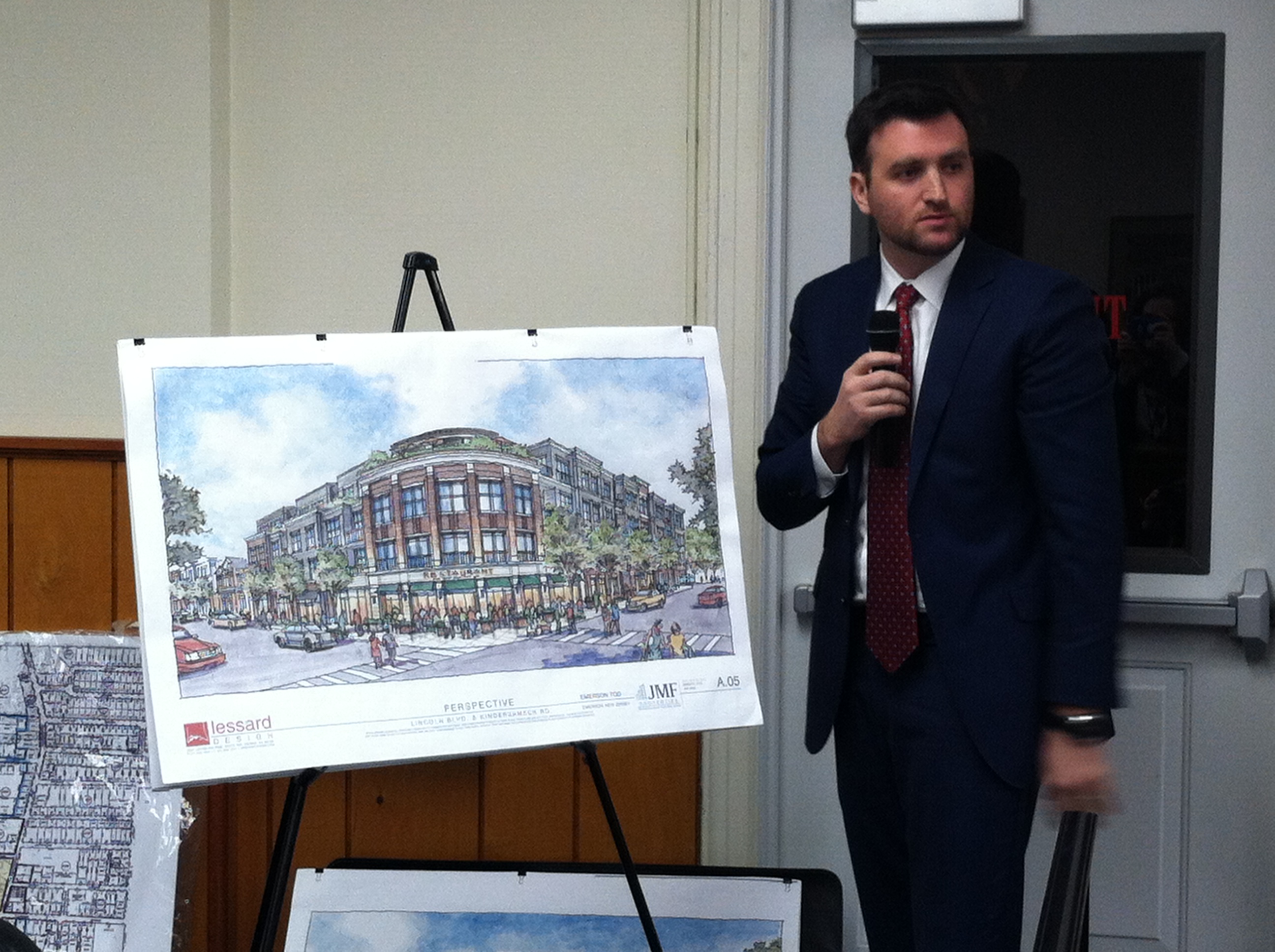
EMERSON—The Borough Council approved a “developer’s agreement” July 6 with Emerson Redevelopers Urban Renewal that provides specific guidelines for project development — including its 29 affordable housing units — on the long-stalled and litigation-plagued Emerson Station project that should allow the massive downtown development to move forward.
The council voted, 5-0, to approve the agreement. Councilwoman Jill McGuire recused herself from voting due to a potential conflict of interest.
Borough Attorney John McCann said the developer’s agreement will hold the redeveloper to build what he agreed to over two years ago.
“The most important thing here is that they got to build what they promised to build and this agreement implements what was agreed to by them two years ago,” said McCann.
A recent Superior Court order by Judge Gregg Padovano appointed a “Mount Laurel Implementation Monitor” to work with both sides to expedite the project in hopes of expediting construction on the 29 affordable units agreed to, including 22 on-site units and 7 off-site units.
While the draft agreement does not contain specific timetables for construction, McCann said the project’s Mount Laurel Implementation Monitor, retired Superior Court Judge Harry Carroll, will monitor progress and set construction timetables moving forward.
McCann said Carroll drafted the “developer’s agreement” and is urging all parties to sign it.
He said the agreement spells out what specific types of affordable units will be built on site and off site, including moderate, low income and very low income.
The agreement binds the parties to produce what was agreed to before the redeveloper and borough filed lawsuits against each other, said McCann, “and anything that moves this project forward is good for us,” he added.
He said the 11-page agreement would likely be publicly available in a couple weeks.
“Once this is completely signed, everything is on them to proceed with the previously agreed on project,” said McCann.
The long-sought developer’s agreement still needs to be signed off by the redeveloper and must be reviewed by the borough’s joint land-use board before it can be implemented.
At the July 6 meeting, no public official commented on the agreement, which was approved following a nearly one-hour closed session.
Emerson, and Mayor Danielle DiPaola, are defendants in lawsuits filed by the redeveloper last summer, charging them with delaying and obstructing the project.
Emerson filed a countersuit against the developer denying its charges and charging them with failing to reimburse the borough for $500,000 in construction services owed them for the deed to property formerly housing the local ambulance squad.
The redeveloper charged that Emerson did not submit its design plans for a new ambulance building by a 2019 deadline and was in default of its agreement to do so.
Recently, the redeveloper has filed a federal lawsuit in U.S. District Court alleging that Emerson has acted in bad faith, delayed their construction schedule, and showed racial discrimination by preventing 29 affordable units from being built as part of the 147-unit, mixed-use residential/retail development planned for downtown.
Emerson has filed a motion denying the charges based on no evidence and challenging the redeveloper to build its approved project.
McCann has charged that the developer’s recent claims are a subterfuge to further delay construction in hopes that a judge may rule for discovery to look into their allegations.
McCann charged that the developer was stalling construction in hopes of reducing the retail space originally agreed to to a fraction of what was proposed, hoping to add more residential units to the development.
McCann told Pascack Press previously that failure to reimburse the $500,000 in construction services for the ambulance property and the redeveloper’s refusal to sign a “developer’s agreement” with a construction timetable were two sticking points holding up the project.
